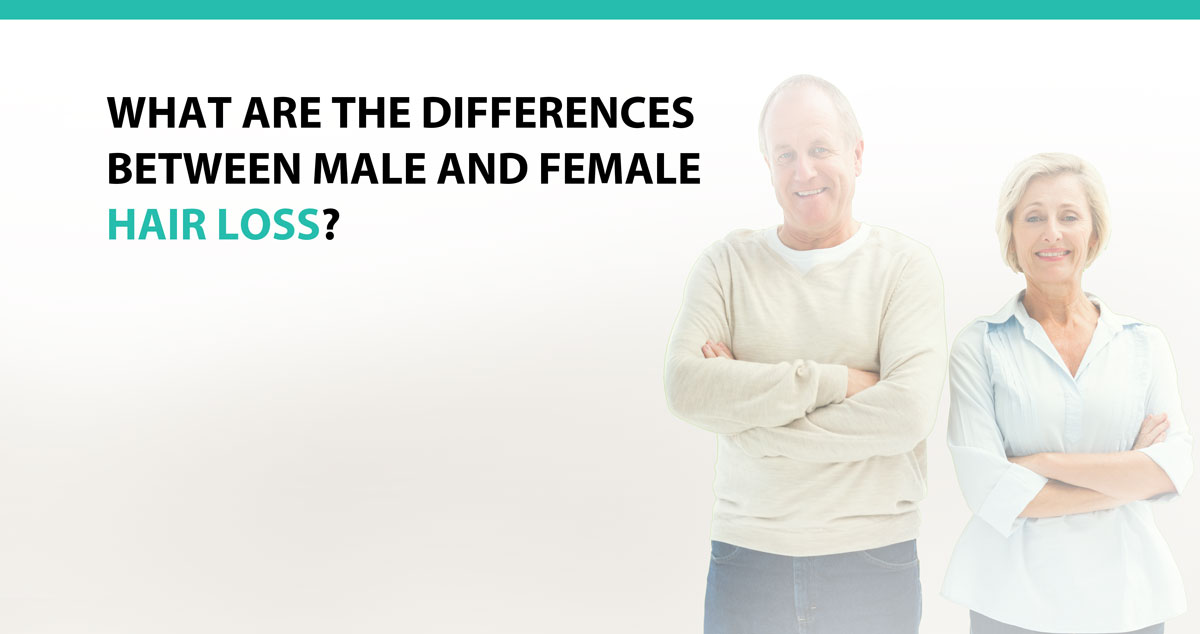
While both men and women experience hair loss, the patterns differ depending on sex. Common causes across genders include aging, medication, autoimmune disorders, harmful hair products, genetics, a bad diet, stress, and lifestyle habits such as smoking. Having glanced at the similarities, let’s discuss the variations in detail.
Differences Between Male and Female Hair Loss
Men generally start losing hair earlier than women. As a male, you’re more likely to notice hair loss before you turn 35, with some experiencing it in their mid to late 20s. This situation can cause discomfort as most interpret it as a sign that their youth and virility are fading. While you might change your shaving habits to accommodate this new appearance, a professional hair transplant procedure is the best long term solution. In contrast, women start losing their hair well into their 40s.
Another difference concern is the hair loss patterns. Male hair usually starts thinning in a distinctive M-shaped design. The hair starts receding from the front of the scalp, including around the temples. Ultimately, you’ll lose most or all of it at the front, middle, and crown parts of your scalp. For women, hair loss tends to distribute more evenly. Although their hairline also recedes, especially around the temples, it doesn’t do so in large distinctive patches like those of men.
Common Causes of Hair Loss in Women
They include:
- Pregnancy: During this period and immediately after birth, some women have thicker hair. That’s due to the high production of estrogen, a hormone that slows down hair shedding. In some cases, hormonal imbalance and stress, especially in the first trimester, might cause hair thinning. Other hair loss triggers during pregnancy include thyroid issues, lack of essential vitamins, and iron deficiency. Postpartum hair shedding is usually the result of lower estrogen production.
- Hormonal Changes: Female bodies produce larger quantities of progesterone and estrogen, as well as smaller amounts of testosterone than men. During menopause, the production of these hormones reduces significantly. They’re also more sensitive to DHT, a hormone that reduces hair density. These hormonal changes might also occur once they stop taking birth control pills. The body will experience a short period of hair loss as it adjusts its hormonal balance.
- Harmful Hair Care Habits: While men are also susceptible to hair loss from questionable hair care routines, women are the most affected. Chemical treatments such as perms, bleaching, dyeing, and creatine solutions can dry, weaken, and damage your hair. Avoid overusing blow dryers, straighteners, and other heat styling tools. Remember to use products such as dry shampoo and hair spray in moderation.
What Are the Causes of Hair Loss in Men?
Although it also occurs in women, androgenetic alopecia is most common in men. Also known as male pattern hair loss, it’s a combination of hormone deficiency and genetic traits. Other causes of male hair loss are:
- Low testosterone: As one of the most significant hormones in your body, a decline in production is bound to have adverse side effects. Your body is also likely to produce DHT, a hormone that disrupts the growth of hair follicles.
- Steroid use: Whether you’re taking steroids as a prescription or for cosmetic reasons, you must be keen on their possible side effects. They’re known to be a contributing factor to hair loss. They do so by encouraging DHT production, which in turn leads to weak or damaged hair follicles.
Contact the Top Rated Las Vegas and Reno Hair Restoration Expert
At the Advanced Medical Hair Institute, we’re passionate about solving your hair loss problems. Led by the highly skilled, experienced, and tech-savvy Dr. Joseph Williams, we’re famous for our natural-looking, durable, and pain-free procedures. Dr. Williams takes his time to understand your particular issue with a view of creating a custom treatment plan. Please book an appointment today for more information on our successful, innovative, and confidence-boosting remedies.










